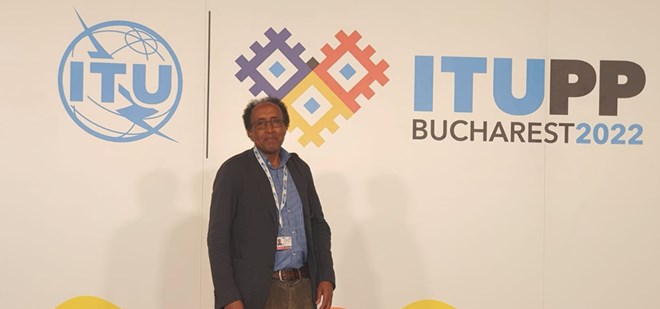
The Plenipotentiary
Conference is the most important event for the highest policy-making body of the
International Telecommunication Union (ITU) and the global tech industry that
engages government and influences this sector. Held every four years, it is the
key event at which ITU Member States decide on the future role of the
organization, thereby determining the organization’s ability to influence and
affect the development of information and communication technologies (ICTs)
worldwide.
The main
objectives of the conference are to set the ITU’s general policies, adopt its
four-year strategic and financial plans; and elect the senior management team
of the organization, the Member States of the Council, and the members of the
Radio Regulations Board. Ministers attending this event arrive to participate
and contribute in all these objectives representing their countries interest in
the global ICT sector. They generally stay for a week and leave their
technocrats to continue participating, negotiating, engaging others in pursuit
of their countries’ interest.
The
Plenipotentiary Conference 2022 (PP-22) started in Bucharest, Romania, from
Monday, 26 September and will continue to Friday, 14 October 2022. Usually, the
Telecommunication ministers from around the world stay for the first week to
deliver their respective countries’ tech policy statements. These are very
important statements that inform the global ICT sector about each country’s
plans and priorities. Global tech investors study these statements when
considering where to invest and which country is worth engaging with. It is
also important to present these statements in front of all the attendees. This
is important as this gives more credibility and enforces the message, ensures
confidence and credibility of the country’s represenatatives. Here are this
years’ policy statements: https://www.youtube.com/playlist?list=PLpoIPNlF8P2NxL1nMJnzI6Ccs5eIQeqZN
The following is a brief summary of the last few ITU Plenipotentiary (PP) events that I have attended. In 2006, PP-06 was held in Antalya (Turkey). In 2010 PP-10 took place in the city of Guadalajara (Mexico). PP-14 was held 2014, Busan, Republic of Korea and in in 2018, PP-18 was held in Dubai and this year PP-22 is taking place in Bucharest, Romania. Why is this brief history important for the Somali ICT sector, students and practitioners in this field? Because many politicians claim that they have done or contributed to the development of this sector, therefore, getting the historical record straight is important.
The ITU and African Telecommunication Union (ATU) websites provide detailed information about Somalia’s involvement, contributions and even membership fees. Those who are interested can also contact the ITU and ATU to get any information they need; this is public domain data and not confidential conformation.
Prof. Abdirizak Osman Jurile introduced me to the ATU and ITU and many years later I did the same for a good friend of mine who later became Somali Telecom Minister, Abdi Ashur Hassan. I also renewed our membership at the ITU and renegotiated the outstanding fees, and this can be reviewed and accessed on the ITU website. In fact, we are discussing this same issue in Bucharest now for some Pacific countries I work with. These historical facts are also important for those researching Somalia’s ICT sector.
Advanced negotiation skills, diplomacy and technical know-how are preliminary and mandatory pre-requisite to represent a country’s technology sector at a global level. Professor Abdirizak Jurile was an outstanding figure in this, and he managed to get many resolutions that I later on continued to enhance such as the resolution 160 and others that were later on adopted after we both left office. This is normal process, it takes years to get these resolutions developed, negotiated, and then implemented. With Somalia’s quick ministerial turnover sometimes some good work that was initiated by one minister gets lost on the way due to lack of knowledge and/or different priorities.
The lessons learnt over the years that I was involved in the Somali ICT sector from global perspective is the need for widening the circle of expertise, ensuring continuity and presenting our policies in a clear manner to the world. We must engage and support our ICT private sector’s and highlight their achievements to the world at events like the current PP. Technical portfolios should never be politicised, the 4.5 model fails Somalia if we present finance, telecom, health ministers who have no idea or have no updated their skills in the field. These portfolios are fast moving areas and require not only higher level skills but understanding and/or at least access to the current thinking in these areas.
The Somali ICT Ministry staff should be developed and allowed to attend the preparatory meeting at the ATU, ITU and Arab telecom events to put forward resolutions and prepare them for the ITU PP event. No resolution was prepared and pushed forward, access to fellowship ceased or are limited for dubious reasons since Dr Abdirizak Jurile and I left this position. There are skills that cannot be learnt unless the Ministry staff are given the opportunity to participate these events. Ministers come and go, but the Ministry staff normally stay (I hope) and they should be given the opportunity to develop, mature and gain expertise including knowing and bonding with their counterparts in other countries. The ITU, African and Arab Tus should be seriously engaged and staff at the Ministry should be given opportunities to take advantage of fellowship available to developing countries.





https://www.youtube.com/playlist?list=PLpoIPNlF8P2NxL1nMJnzI6Ccs5eIQeqZN